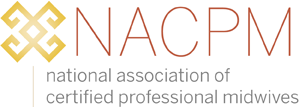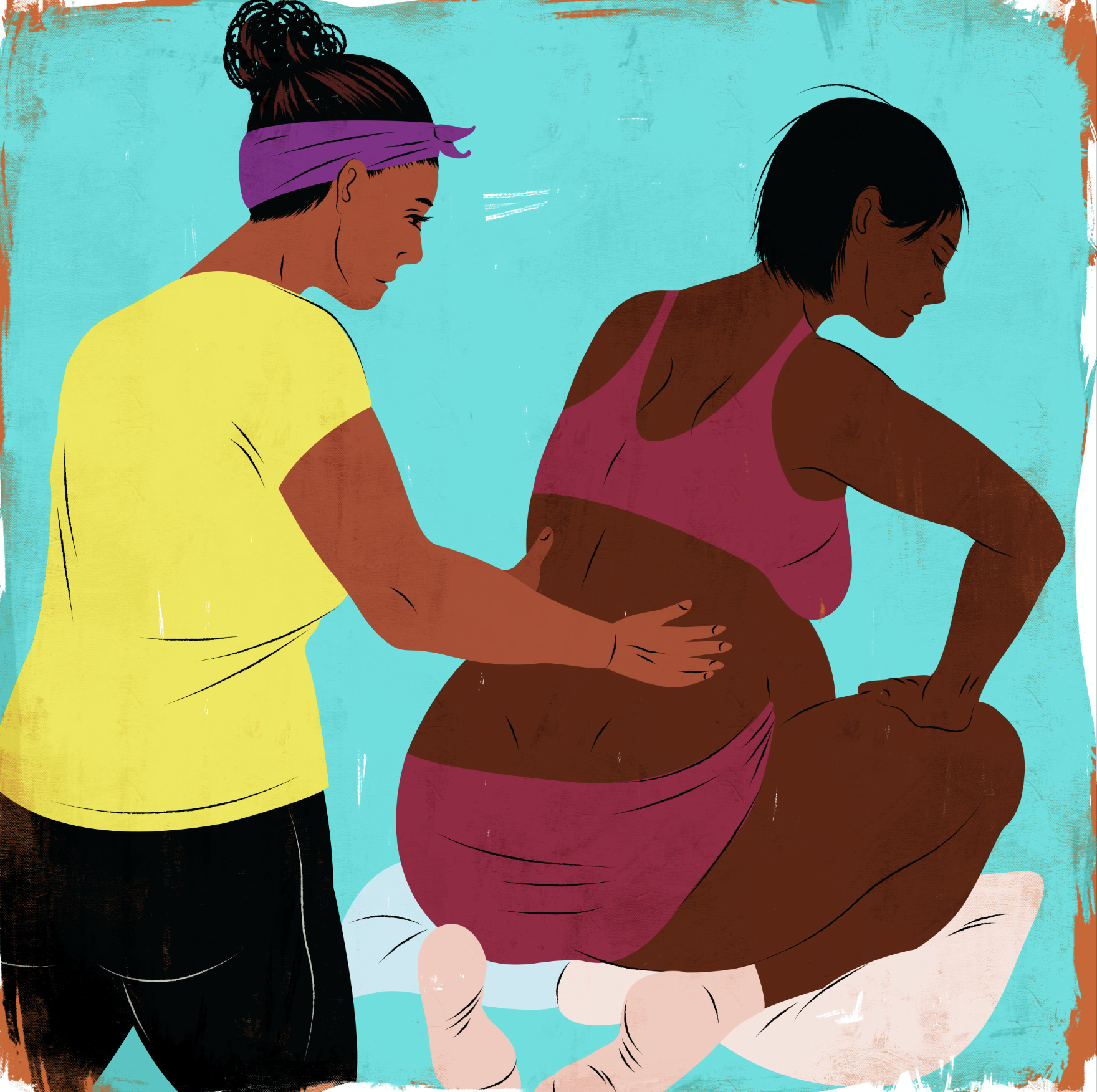Who are CPMs?
A Certified Professional Midwife (CPM) is a knowledgeable, skilled and professional primary maternity care provider. CPMs are trained and credentialed to offer expert care, education, counseling and support to birthing people during the pregnancy, birth and the postpartum periods. CPMs practice as autonomous health professionals working within a network of relationships with other care providers who can provide consultation and collaboration when needed. All CPMs meet the standards for certification set by the North American Registry of Midwives (NARM).
In the United States, Certified Professional Midwives provide unique and critical access to normal physiologic birth, profoundly benefitting birthing people and newborns. Although qualified to practice in any setting, they have particular training and expertise in providing care in homes and free-standing birth centers, and own or work in over half of the birth centers in the U.S. today.
Certified Professional Midwives are a fast-growing branch of the midwifery profession in the United States. The first CPM credential was issued in 1994 and 3973 have been awarded as of May 2021. Currently, with approximately 2600 active credentials, approximately 1 in 5 midwives in the U.S. today is a CPM.
The CPM Credential
National certification is a mechanism by which members of the midwifery profession exercise the right and responsibility for ensuring there are standards for the core competencies necessary for safe practice and that midwives achieve and maintain the defined competencies. National certification, like educational program accreditation, is developed and administered through private agencies.
The CPM credential was developed by the North American Registry of Midwives (NARM) in collaboration with the Midwives Alliance of North America (MANA), the Midwifery Education Accreditation Council (MEAC), and diverse stakeholders from across the United States, including consumers who later founded Citizens for Midwifery (CfM). The credential validates the knowledge, skills, and abilities vital to responsible midwifery practice and reflects and preserves the essential nature of midwifery care. The competency-based model for certification assures well-educated, skilled, and competent providers.
The requirements and process for achieving national certification as a CPM were implemented by NARM in 1994. Multiple pathways to certification were established, including graduation from an education program accredited by the Midwifery Education Accreditation Council (MEAC) or the Accreditation Commission for Midwifery Education (ACME), completion ofthe Portfolio Evaluation Process,or holding current legal recognition to practice in the United Kingdom, legal recognition in a state previously evaluated for educational equivalency, or comparable international training. Between 1994 and 2021, more than 3,973 midwives received the CPM certification, with 2600 certifications active in 2021.
All CPM candidates are required to demonstrate acquisition of the required knowledge and skills and to have performed competently as primary midwife under supervision. Certification is renewed every three years, and all CPMs must obtain continuing education and participate in peer review for recertification. In addition, NARM requires that each CPM have written practice guidelines, a process for informed disclosure and consent with clients, including a HIPAA privacy policy, and that the CPM participates in a one-time cultural competency course for certification or recertification. Evidence of ongoing continuing education is required to maintain the CPM credential.
Qualifications for the credential are based on a job analysis, periodic surveys of practicing midwives to determine what midwives need to know and be able to do. This process is mandated by the National Commission for Certifying Agencies (NCCA) which accredits national health credentials in the U.S., including the CPM, Certified Nurse-Midwife (CNM) and Certified Midwife (CM). NCCA is the accrediting body of the Institute for Credentialing Excellence (ICE), formerly the National Organization for Competency Assurance (NOCA). The mission of ICE is to promote excellence in competency assurance for practitioners in all occupations and professions.
NARM’s most recent job analysis survey to identify the essential and current competencies necessary for safe and competent practice of midwifery was conducted in 2016. Participation in the job analysis survey is one important way CPMs continue to define and set standards for the profession. Approximately one-third of all CPMs who currently hold the CPM credential participated in the 2016 survey.
For more information about the CPM credential:
Visit www.narm.org
See NACPM’s Briefing Paper: Certification and a National Credential
Legal Recognition of CPMs
Legal Recognition of CPMs Updated May 15, 2020
As of May 15, 2020, CPMs have a path to licensure in 34 states and the District of Columbia:
Alabama, Alaska, Arizona, Arkansas, California, Colorado, Deleware, District of Columbia, Florida, Hawaii, Idaho, Indiana, Kentucky, Louisiana, Maine, Maryland, Michigan, Minnesota, Montana, New Hampshire, New Jersey, New Mexico, Oklahoma, Oregon, Rhode Island, South Carolina, South Dakota, Tennessee, Texas, Utah, Vermont, Virginia, Washington, Wisconsin, Wyoming.
NACPM Support for State Licensure
NACPM is committed to securing licensure for Certified Professional Midwives in all 50 states and U.S. territories based on the standards set by the profession for certification, education, scope of practice and standard of care. Licensure is key to making midwifery more widely accessible and enables CPMs to participate in an integrated system that includes opportunities for consultation, collaboration, referral, and multi-disciplinary peer review. It is also a mechanism by which members of the midwifery profession are held accountable to the public for providing safe care that is consistent with the scope of practice defined by the profession and upheld by state law and subsequent regulatory guidelines.
Understanding that midwifery regulation historically was often used as a tool to restrict or eliminate midwifery, NACPM is committed to strengthening the profession, addressing barriers to full participation in the profession, particularly by people of color, and supporting legislation that facilitates access to care and contributes to a robust, more representative midwifery workforce.
NACPM provides support to states developing licensing legislation and also to states who are improving or defending laws regulating CPMs.
Technical Assistance with drafting and revising legislation
Midwifery Landscape and Future Directions Briefing Papers: Legislation and Regulation
State Chapter Collaboration Calls
“Home Visits” to NACPM Chapters & state midwifery associations
Statement on the Licensure of Certified Professional Midwives
US MERA Principles for Model U.S. Midwifery Legislation and Regulation
NACPM is a member association of the International Confederation of Midwives and embraces the ICM Global Vision for Strengthening Midwifery and the ICM Standards for Midwifery Regulation (2011). These Global Standards serve as a guide to development of legislation, amendments to existing legislation, and promoting changes that strengthen regulatory frameworks to support autonomous midwifery practice.

